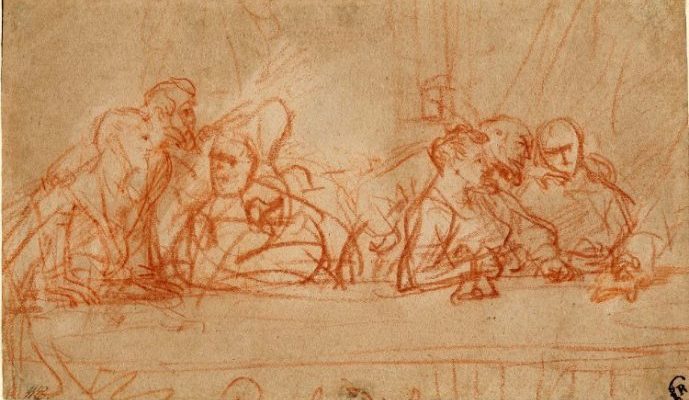 April 15, 2010
April 15, 2010
I sat for an hour in the Sistine Chapel today. I have been there before, and I felt blessed to be back a second time. It is a place people visit once if they are lucky. I have been doubly lucky. My parents were lucky, too, once upon a time, when they stood in that same room nearly 60 years ago. Did they, too, hold their breath in sharp recognition?
What I was struck by this time was different than the last time, four years ago, but then that has a lot to do with art, and who we are, and what it pertinent at any given time—what we are worrying with our attention.
This time what infused me was the potent realization that Michelangelo captures in his work the key moment when a character makes a decision.
God reaches with urgency toward Adam’s hand, to give life. Adam waits passively. His left hand hangs limp from the arm draped on his leg. But it is God making the choice, that driving moment of decisiveness when he Knows, and so must reach, reach—reach!—for Adam’s hand.
It is the same with the Pieta in St. Peter’s. Mary makes a choice—which Michelangelo captures—to accept her part in the divine play. Her’s is a face of peace, not grief. Her dead son lies limp in her arms, but there is no agony in her face. Instead, her placid features take us back to the Annunciation when she accepts what God intends. With her left hand turned up in submission, Michelangelo’s Mary is a character in a sublime moment of choice.
It is this way in writing, too.
We await always in a story the character’s defining moment of choice. The entire story becomes about that one choice. In literature, the art of story, we journey toward that choice.
In Michelangelo’s art, we hold our breath in that one moment—for 500 years, and counting. That is the grace that great art imparts, that sharp intake of breath when we witness a transcendent human moment, that never ages.


